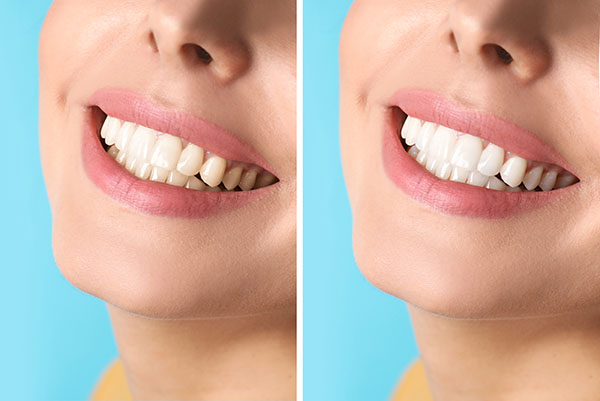How Periodontics Can Help Take Care of Your Gums

Periodontics is a branch of dentistry that focuses on issues that affect your gums. Taking care of your gums is just as important as taking care of your teeth. Gums help keep the teeth stable in their sockets, and gum disease is linked to serious health issues, like diabetes, heart disease, respiratory problems, and stroke.
Failing to take good care of your gums can lead to teeth becoming loose or falling out of their socket. It can also lead to the bone structures that support teeth being permanently damaged. Fortunately, periodontics uses treatments like teeth cleanings and deep cleanings to keep your gum tissues disease-free.
Keep your gums healthy with periodontics
Brushing twice daily and flossing once each day helps keep teeth and gum tissues healthy. Flossing helps get rid of plaque buildup around the gum line, reducing the risk of gum tissues becoming infected. It also helps stimulate gum tissues. An antibacterial mouthwash provides an additional layer of protection for gum tissues because it reduces bacteria in the mouth.
How periodontics protects your gums
Periodontics primarily focuses on the prevention, diagnosis, and treatment of gum disease. Gum disease is a chronic infection of gum tissues that leads to inflammation and irritation. Over time, this inflammation leads to symptoms like receding gums, which leaves teeth roots exposed to acids in the mouth. It also damages the bone and tissue structures that keep teeth in place.
The early stage is called gingivitis, and it can be reversed with improved oral hygiene and teeth cleaning. The more advanced stage is called periodontitis, and it cannot be reversed. However, periodontic treatment can be used to manage and treat the damage caused by the condition. Treatments used to prevent and treat gum disease include the following.
Teeth cleaning
The American Dental Association recommends having teeth cleaned at least two times per year. These treatments are used to remove tartar and plaque from teeth surfaces and the patient’s gumline. It helps prevent tooth decay and gum disease, and it can be used to treat gingivitis.
Deep cleaning
This type of teeth cleaning that involves removing tartar and plaque from teeth surfaces and their roots. The patient’s gums are pulled back so the roots of their teeth can be reached. The procedure can be performed with metal tools or a laser.
Gum grafts
Gum grafts can be used to repair damage done to gum tissues in the mouth. For example, receding gums can be treated by covering up exposed teeth roots with grafted gum tissues.
Bone grafts
Bone grafts are used to repair damage to bone structures that have been damaged by gum disease. It can help stabilize loose teeth or thicken a patient’s jawbone so a lost tooth can be replaced with a dental implant.
Explore periodontics
Give us a call or visit our Lakewood clinic to learn more about periodontics and how it can help to prevent and treat gum disease.
Request an appointment here: https://www.leixdental.com or call Leix Dental at (815) 604-6104 for an appointment in our Lakewood office.
Check out what others are saying about our dental services on Yelp: Periodontics in Lakewood, IL.
Recent Posts
Considering Perio Protect® to address gum disease problems? While it is rather new, the treatment has been proven to be quite successful. Unlike other gum disease treatments, Perio Protect® is gentle, non-invasive and very convenient. While good oral hygiene, such as brushing and flossing does help keep gums in good shape, there are times where brushing…
Cosmetic dental services often involve using tooth-colored restorations to restore damaged, decayed, or discolored teeth. Restorations, like crowns, can be made from materials like gold, silver, and metal alloys, but these materials look nothing like natural teeth. Most patients prefer restorations made from materials that share properties with real teeth, like porcelain, ceramics, and composites.…
Cosmetic dental services can transform a person's smile by treating oral health issues like teeth crowding. A cosmetic dentist will use whichever dental procedures benefit their patient. It is not uncommon for a cosmetic dentist to use orthodontics or restorative dentistry to improve a smile. The type of treatment that the dentist recommends will depend…
Certain cosmetic dental services like teeth whitening can be performed to address issues that affect multiple teeth at once.Let us look at a few of the cosmetic dental services that can be used to improve the aesthetics of more than one tooth simultaneously.Teeth whitening treatments are among the fastest ways to improve how a person’s…


